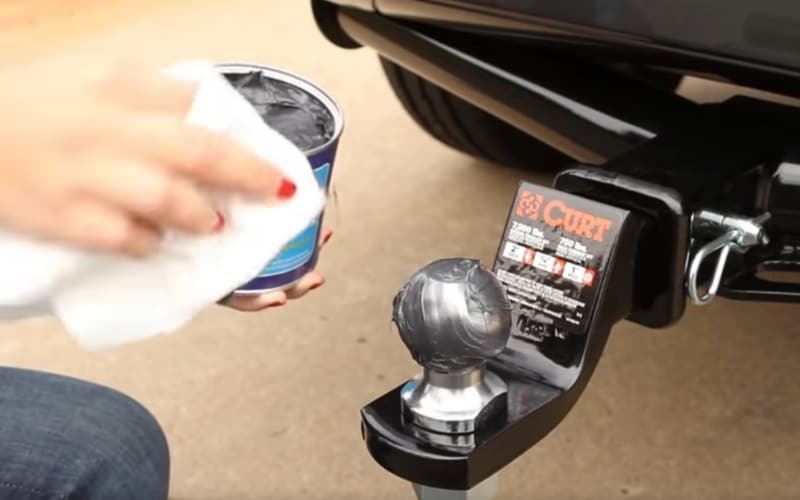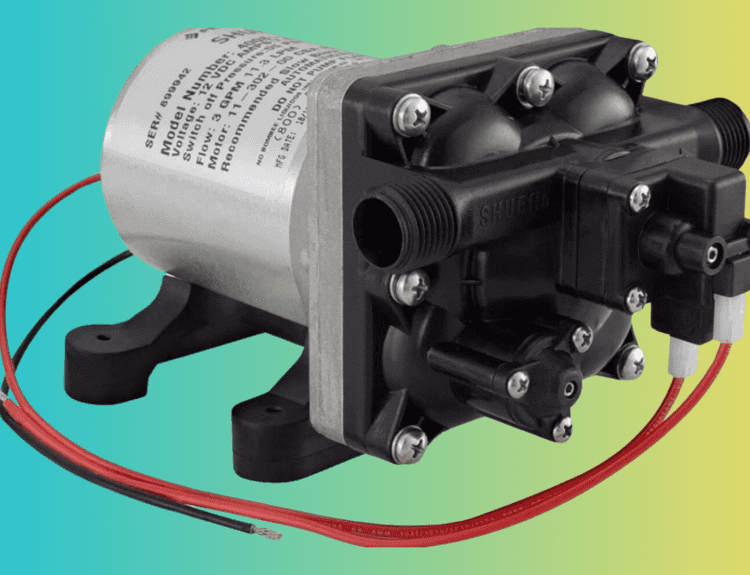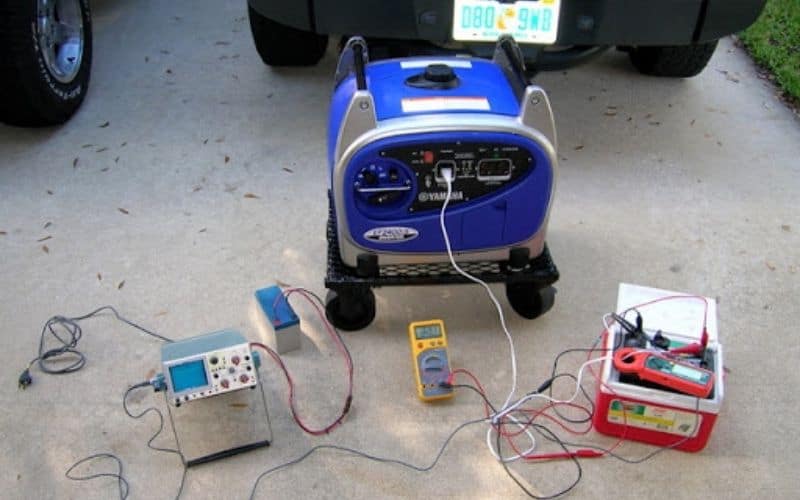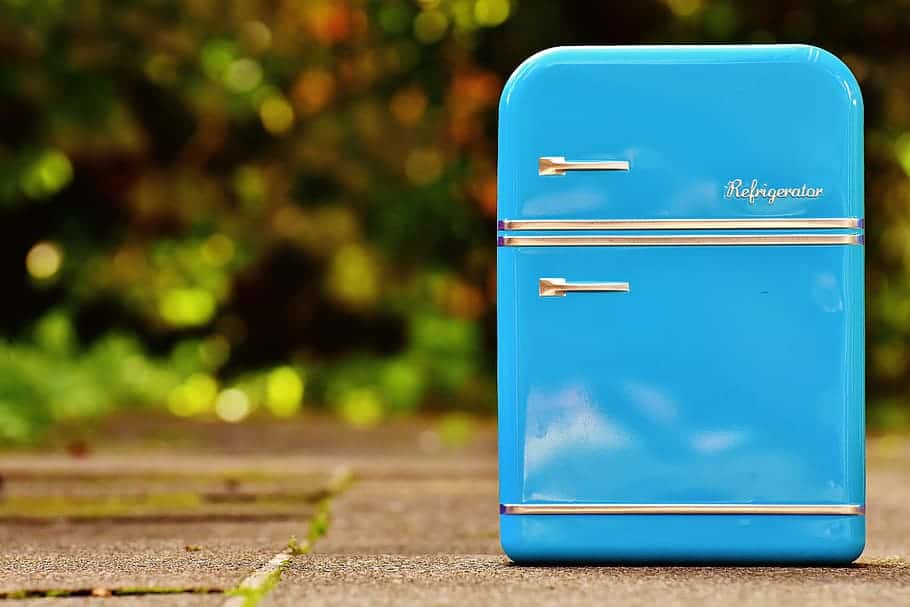Every trailer can benefit from some occasional maintenance. While greasing wheel bearings and winterizing the plumbing are obvious seasonal measures, they aren’t the only parts of your travel trailer that need maintenance.
If you’ve ever turned a corner or backed into a tight campsite, chances are you have heard the “Nails on a Chalkboard” squeal and grinding noises of the trailer’s tongue grinding on the ball of your hitch.
This might have you wondering, should I grease my hitch ball?
Since we are talking about a metal-on-metal connection, a little grease can be a good idea. Though the best type of lubrication, how to apply it, and how often to apply it can be a little bit of a gray area. At the same time, some people are hotly against the idea of greasing the hitch ball as it can lead to other possible complications.
We decided to wade a little deeper into this debate to explore the pros and cons of greasing the ball hitch, to find out if it’s right for you as part of your trailer’s routine maintenance. This starts with asking and answering some key questions.
What Are The Benefits Of Greasing Your Hitch Ball?
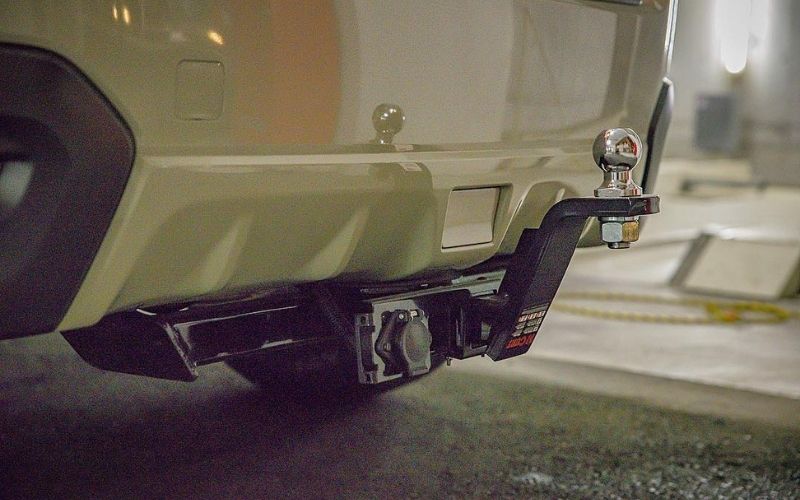
There are some easy benefits to greasing your hitch ball. This starts with having the proper lubrication to help prevent the grinding, scraping, and unnerving squealing noises that come when the tongue of your trailer pivots on the ball. Though this is just the tip of the iceberg.
Pros Of Greasing Your Hitch Ball
What Are The Drawbacks Of Greasing Your Hitch Ball
Greasing your ball hitch does have some potential drawbacks to consider.
Many people who are against greasing their ball hitch will note that even the slightest layer of grease can capture dust and other contaminants.
Cons Of Greasing Your Hitch Ball
Can Rust Affect The Connection Between A Tongue & Hitch Ball?
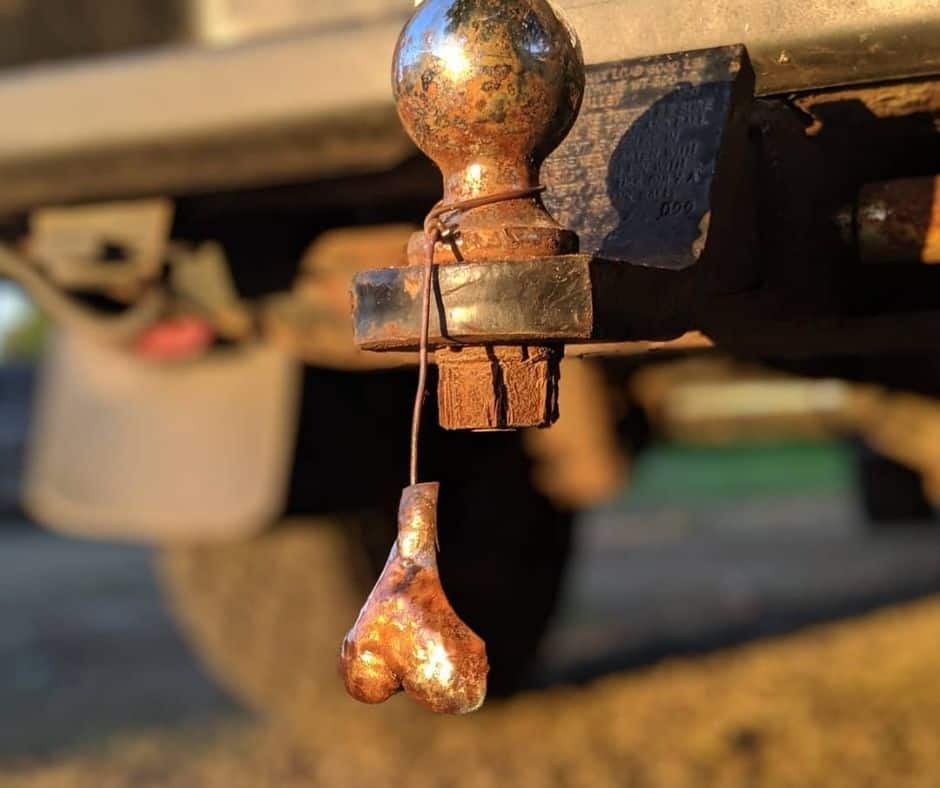
A little bit of surface rust isn’t going to affect the connection between the tongue and the Hitch ball beyond looking ugly and the potential for it to make ugly noises.
Most long-term rust that penetrates deeper into the ball and other components of the hitch can compromise the structural integrity, which could cause a major accident when you are towing under tough conditions.
What Is The Best Lubricant To Grease My Trailer Hitch Ball?
Most proponents of lubricating a ball hitch lean toward a dry graphite lubricant like CRC Dry Graphite Lube.
Though it’s certainly not the only effective or the most cost-efficient lubricant to consider.
So, we decided to take a closer look at some of the best options for greasing your ball hitch.
1. CRC 03094 Dry Graphite Lube 10 Wt Oz
CRC Dry Graphite Lube is one of the best options for lubricating your ball hitch. It doesn’t attract and trap dust and dirt like a lot of petroleum-based lubricants do.
In fact, the way it rapidly bonds to metal helps to create a protective layer against physical contaminants while also helping to prevent ambient moisture from causing rust.
As a bonus, it meets EPA safety standards, and it doesn’t contain any known ozone-damaging components.
2. Reese Towpower 58117 Hitch Ball Lube
Reese Towpower is one of the most popular “White Grease” lubricants for ball hitches.
It was originally formulated in 1952 and has been a mainstay for tradesmen and RV enthusiasts for decades.
It does a great job of reducing ball wear, while also helping to protect the ball and the connecting surfaces of the tongue.
Though as a type of “White Grease” it can be prone to capturing dust and dirt.
If you do notice something stuck on the surface of your ball hitch, you can wipe it clean with a dry shop rag. There are multiple applications in one jar of Reese Towpower.
3. Blaster 52000000 General Purpose Dry Lubricant
Blaster is a Teflon-based dry lubricant that comes in a convenient aerosol spray can.
It is useful on all kinds of other applications like sliding glass doors, sticky tool drawers, and gliders.
The Teflon doesn’t last as long as graphite, but you will get tons of applications and uses out of one spray can without the mess of a greasy lubricant.
4. WD 40 Dry Lube WDF300059 10 Once
WD 40 is best known for its popular penetrating lubricant. Though they have openly embraced the opportunity to provide dry lubricants like this PTFE spray lubricant.
It adheres to metallic surfaces to both lubricating the relationship between the hitch ball and the tongue, while also producing a water-resistant layer to prevent moisture-based corrosion.
How To Properly Lubricate A Hitch Ball
There are a few steps to consider when greasing or lubricating a hitch ball.
The focus is both on preparing the ball based on its current condition as well as the type of lubricant you are using.
Step 1: Prepare The Hitch Ball
If your hitch ball has traces of existing rust, you should lightly sand it with a fine-grit automotive or metallic sandpaper.
Then use a clean paper towel or heavy-duty shop rag to thoroughly wipe it clean.
Step 2: Install Or Preserve The Ball
If you aren’t going to immediately connect the tongue of the trailer to the hitch ball, you should put it indoors or wrap it in a plastic bag to prevent contact with moisture.
Otherwise, you can install the hitch ball to the bumper or receiver hitch.
Step 3: Lubricate & Connect To The Trailer
Follow the manufacturer’s instructions for your chosen type of lubricant. In the case of white grease, you can simply put on a pair of latex gloves and apply by hand.
Dry spray lubricants are directly sprayed onto the metal of the ball.
With either method make sure that grease thoroughly covers all surfaces on the ball hitch including the underside taper where the tongue of the trailer compresses onto the ball.
How Often Do I Need To Grease My Hitch Ball?
You can lightly grease or relubricate your ball hitch before leaving on a trip with your trailer.
It can also be part of your spring prep and fall winterization process.
If you need to wipe clean the ball hitch you should apply a new layer of lubricant to help protect it from moisture-based corrosion.
Taking steps to protect your ball hitch from dust, dirt and moisture will go a long way toward preventing corrosion complications when not in use.
How To Protect Your Ball Hitch When You Aren’t Using It
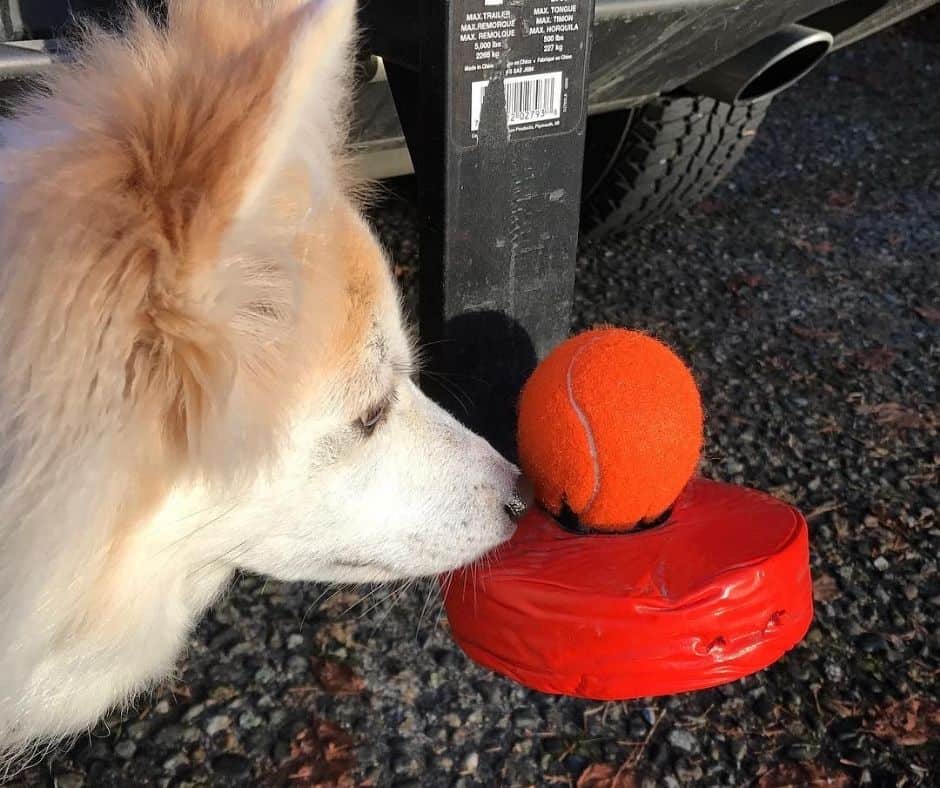
If you have a receiver hitch that lets you disconnect the ball or you are willing to put in the elbow grease to remove the ball hitch from your bumper, you should consider taking steps to prevent moisture exposure when you aren’t using it. There are a few ways to do this.
Tennis Ball Cover
If you have a bumper-mounted hitch or you store your tow vehicle in a garage when not in use, you can cut an X in the bottom of a new tennis ball.
Apply a small amount of lubricant and firmly seat it over the hitch ball. This will protect it from rain and ambient moisture to prevent long-term rust issues.
Store In A Gallon-Size Bag
If you can easily take the hitch ball off, you can store it in a plastic bag. This will help prevent contact from moisture when not in use.
Applying a layer of fresh lubricant will also create a protective layer against lingering humidity.
Sealable Tote Bin
If you have a receiver hitch, you can leave the ball attached and store it in a small sealable tote bin.
This will give it total protection from moisture. Applying a small layer of fresh lubricant will further help prevent rust from ambient humidity and moisture.
Conclusion
Some people aren’t fans of greasing their hitch ball and point to the dust buildup as well as the fact that hitch manufacturers are silent on the issue.
Though a great number of people prefer to lubricate their ball hitch to help prevent rust buildup while reducing the friction stress on the trailer’s tongue.
If you have weighed the pros and cons of greasing your ball hitch, you will need to prep the ball hitch, by cleaning it in advance of applying your preferred lubricant.
Then follow the manufacturer’s recommendations for proper application.
If you don’t want to deal with the potential build-up of ambient dust and dirt, you might want to manually apply Reese Towpower 58117 Hitch Ball Lube. It is non-toxic while providing a protective moisture layer.
If you don’t want to deal with the potential mess of white grease, you might want to lubricate your hitch ball with a dry lubricant like CRC Dry Graphite Lube or a PTFE like WD 40 Dry Lube.
Not only can it give your hitch ball some added protection, but it’s also multi-purpose for other surfaces in your home or RV like a sliding glass door track or a sticky drawer slide.

